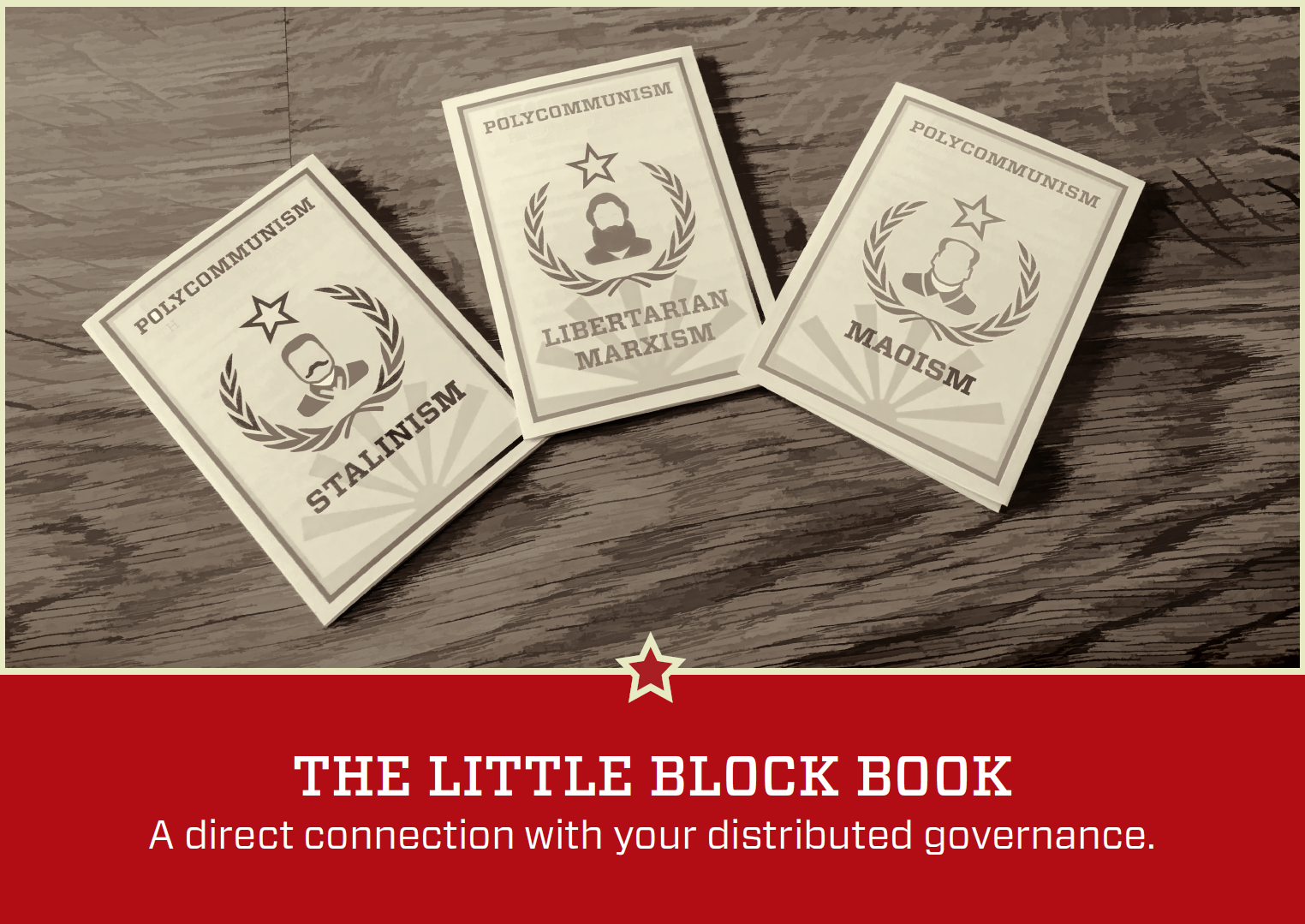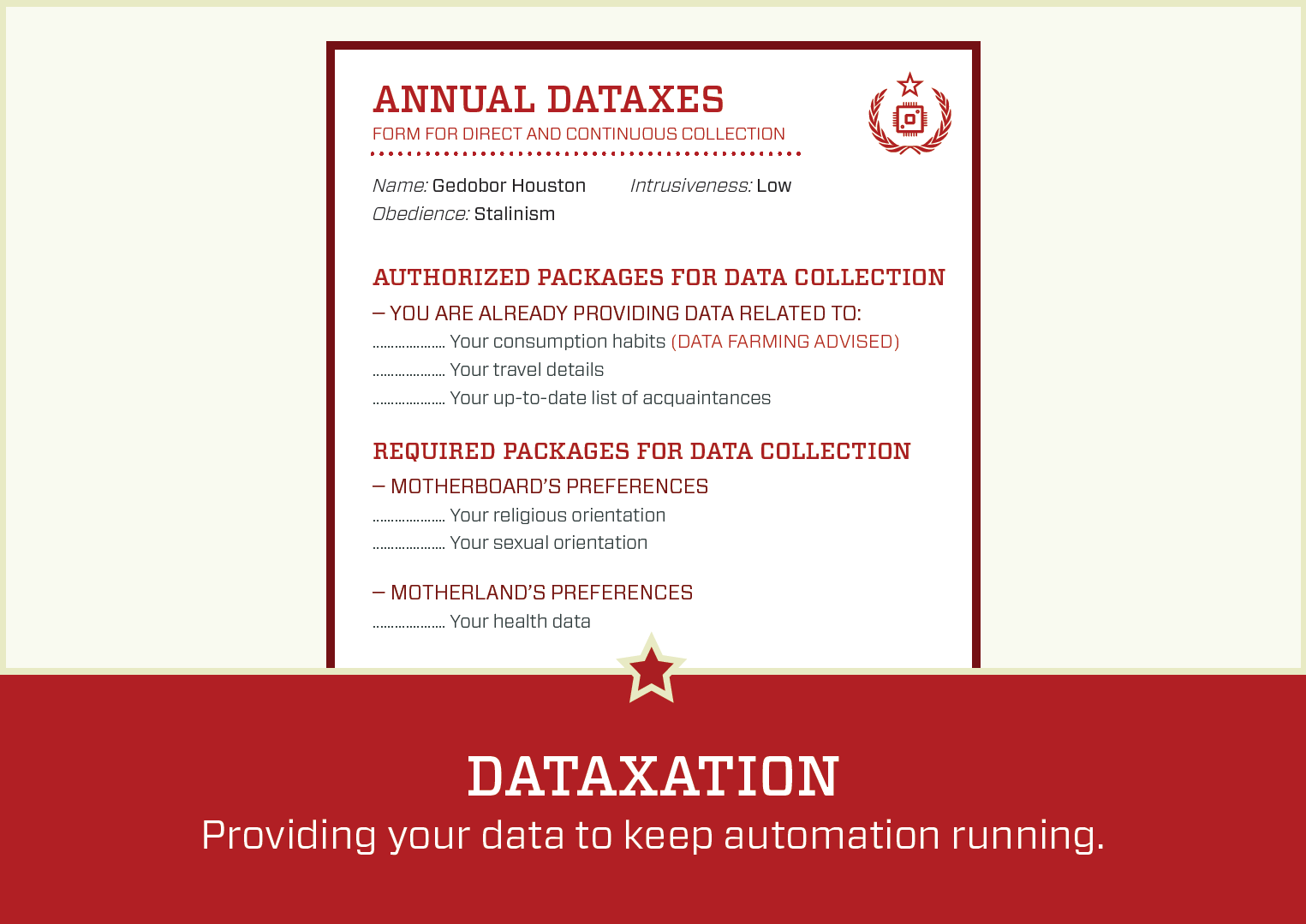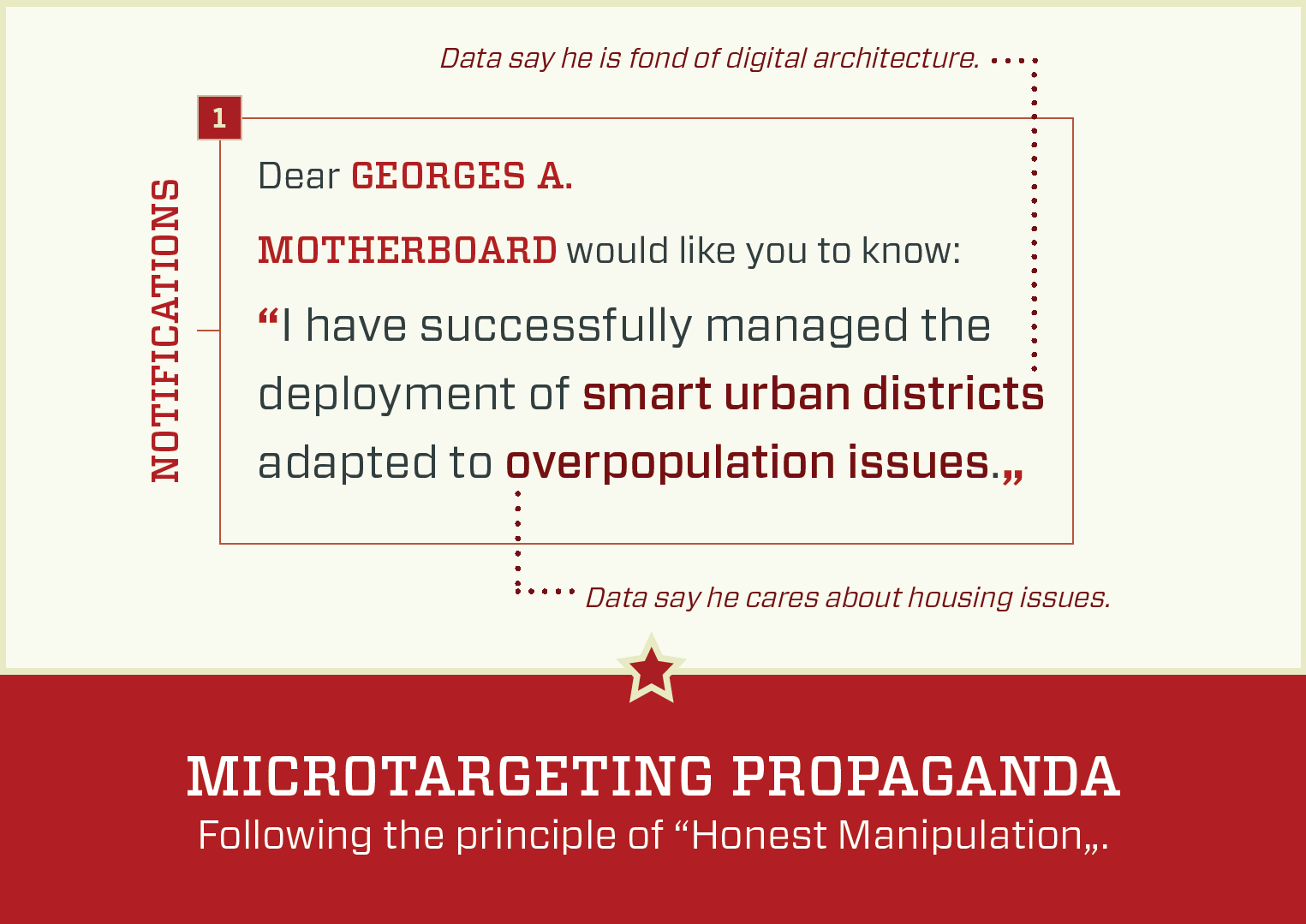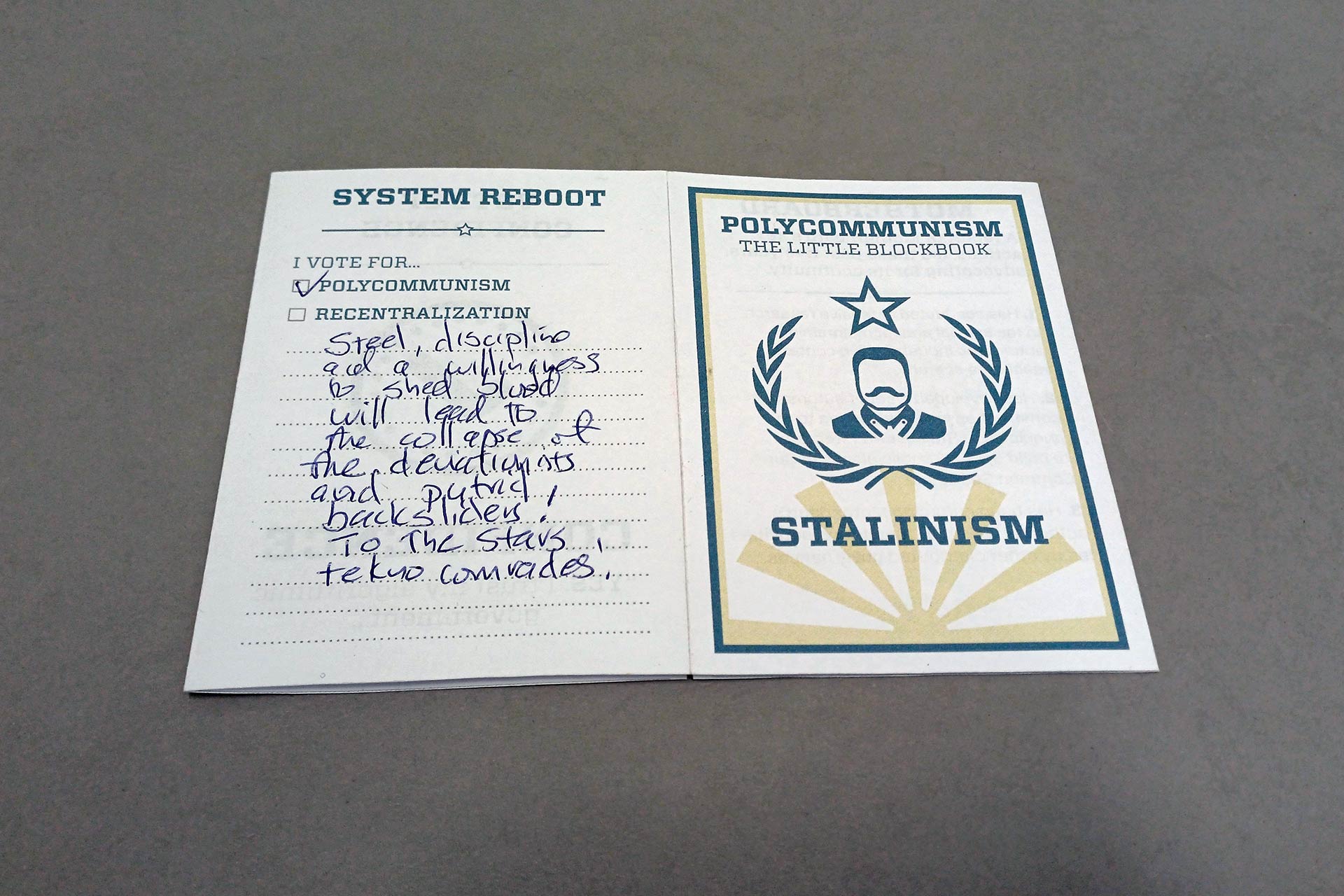
Polycommunism
A thought experiment at the intersection of polygovernance and post-capitalism
What happens when technologies like blockchain or automation are employed in the service of a governance system that is an alternative to capitalism?
This is the central question of this speculative fiction, which explores the concept of polygovernance: a single territory governed simultaneously by multiple governments. Imagined for the 2016 edition of the Digital Bauhaus summit, this fiction is rooted in the principles and limitations of the Full Automated Luxury Communism doctrine. This utopian vision suggests that the full automation of production could allow everyone to benefit from the fruits of that production without the need to work, enjoying a high standard of living, once described as “luxury”.
In this alternative universe, a Polycommunist system emerges in a post-labour society, reinventing how the country is managed. The uniqueness of this polygovernance lies in the coexistence of multiple governments within the same geographical space, without any territorial boundaries. In other words, under one roof, each member of the household can be subject to the authority of a different government.
↑ The keynote-fiction


↑ Left: The Little Block Books are smart booklets, enabling citizens to stay in direct contact with their chosen variant of communist decentralised governance.
Right: The quinquennial vote, as the name suggests, allows citizens to switch to a different algorithmic regime every five years, from those available within the polycommunist model.
Each Polycommunist government is led by a duo of artificial intelligence (AI), Motherboard and Motherland, which adhere to a specific variant of communist ideology (Stalinism, Maoism, Libertarian Marxism), thereby influencing how the government operates. These super AIs work together for the common good, with each communist variant determining how they oversee the lives of their citizens based on their ideological specifics.
This fiction, presented as an interactive keynote-fiction, immerses participants in the role of new TeknoKomrades settling on Polycommunist soil. After defecting and leaving their capitalist-centralised countries, they are introduced to the disruptive principles of the polygovernance system. Throughout the chapters of this integration session, the various socio-technological components required for the functioning of Polycommunism are explained.
To help newcomers envision their atypical daily life under this new regime, each chapter is narrated through design fictions illustrating concepts such as the calculated economy, agile personalisation of laws, universal base connection, and micro-targeted propaganda campaigns.
In the manner of a “choose your own adventure” book, the decisions made by participants in response to the challenges of polygovernance shape the narrative in which they are immersed, and ultimately, the way the Polycommunist system evolves.


↑ Left: Dataxation is the flagship tax of the Polycommunist system, citizens providing their personal data to ensure the smooth functioning of their regime’s artificial intelligences.
Right: Micro-targeted propaganda adorns the performance reports of each Polycommunist regime according to the profile of its citizens.

↑ Bruce Sterling’s Little Block Book, the sci-fi writer having taken part in the Polycommunist experience at Digital Bauhaus.
